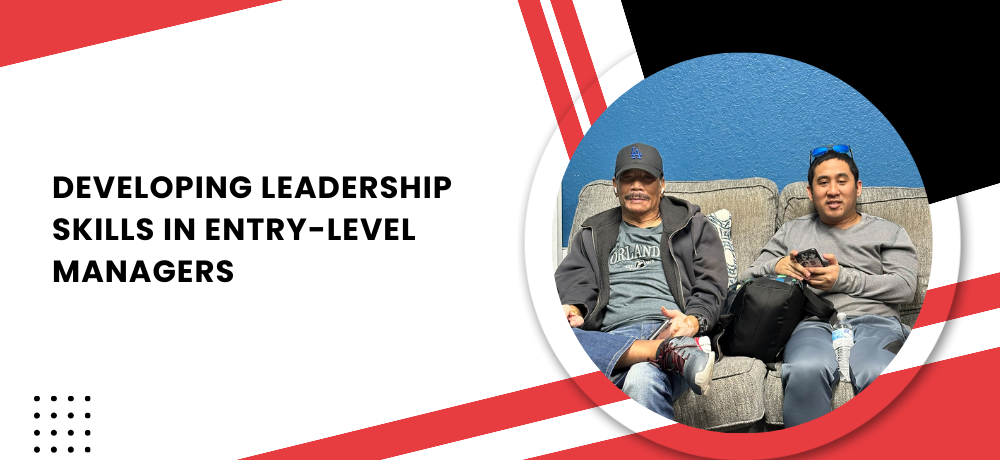As organizations evolve in the dynamic landscape of today’s business world, the demand for effective leadership is more critical than ever. Entry-level managers play a pivotal role in shaping the foundation of a company’s success, and their ability to lead teams can significantly impact overall productivity and employee satisfaction. Developing strong leadership skills in entry-level managers is not only a strategic investment in the company’s future but also a crucial step towards fostering a positive organizational culture. In this context, this discussion will explore key strategies to enhance leadership capabilities among entry-level managers, equipping them with the tools and mindset necessary to navigate the complexities of modern management.
Five Long Points on Developing Leadership Skills in Entry-Level Managers:
Emphasizing Emotional Intelligence:
Entry-level managers often face challenges in handling interpersonal dynamics within their teams. Fostering emotional intelligence is paramount in navigating these complexities. By recognizing and managing their emotions and understanding the feelings of others, managers can create a positive work environment. Training programs that focus on empathy, self-awareness, and effective communication can significantly contribute to the development of emotionally intelligent leaders.
Providing Mentorship and Coaching Programs:
Establishing mentorship and coaching programs tailored for entry-level managers creates a supportive framework for their professional growth. Seasoned leaders within the organization can share their experiences, offer guidance, and provide valuable feedback. This not only accelerates the learning curve for entry-level managers but also instills a sense of confidence and competence in their leadership abilities.
Encouraging Continuous Learning and Skill Development:
Leadership is an evolving skill that requires continuous learning. Encouraging entry-level managers to pursue ongoing education and skill development ensures that they stay abreast of industry trends and management best practices. Companies can facilitate workshops, webinars, and access to relevant resources to empower managers to broaden their skill set and apply the latest management methodologies in their roles.
Promoting a Collaborative and Inclusive Culture:
Effective leaders understand the value of a collaborative and inclusive workplace culture. Entry-level managers should be encouraged to build diverse and inclusive teams that capitalize on the unique strengths of each member. Leadership training programs can focus on fostering inclusive communication, conflict resolution, and team-building skills to create a cohesive and high-performing work environment.
Instilling a Results-Oriented Mindset:
Entry-level managers often grapple with the transition from individual contributors to leaders responsible for team outcomes. Developing a results-oriented mindset involves setting clear goals, tracking performance metrics, and holding teams accountable for achieving objectives. Leadership training should emphasize strategic goal-setting, performance measurement techniques, and the ability to adapt strategies based on outcomes, empowering managers to drive success within their teams.
Investing in the development of leadership skills for entry-level managers is integral to the long-term success of any organization. By focusing on emotional intelligence, mentorship, continuous learning, inclusive culture, and results-oriented thinking, companies can cultivate a generation of leaders who are not only adept at navigating challenges but also capable of inspiring and guiding their teams towards sustained excellence.
Ready to elevate your leadership skills? At NCOs Enterprise Inc., we are not just a company; we are a community of professionals dedicated to helping you realize your full potential in sales. To learn more about the opportunities we offer, please click here. To take the first step toward an exciting career with us, send your resume and cover letter to [email protected].

